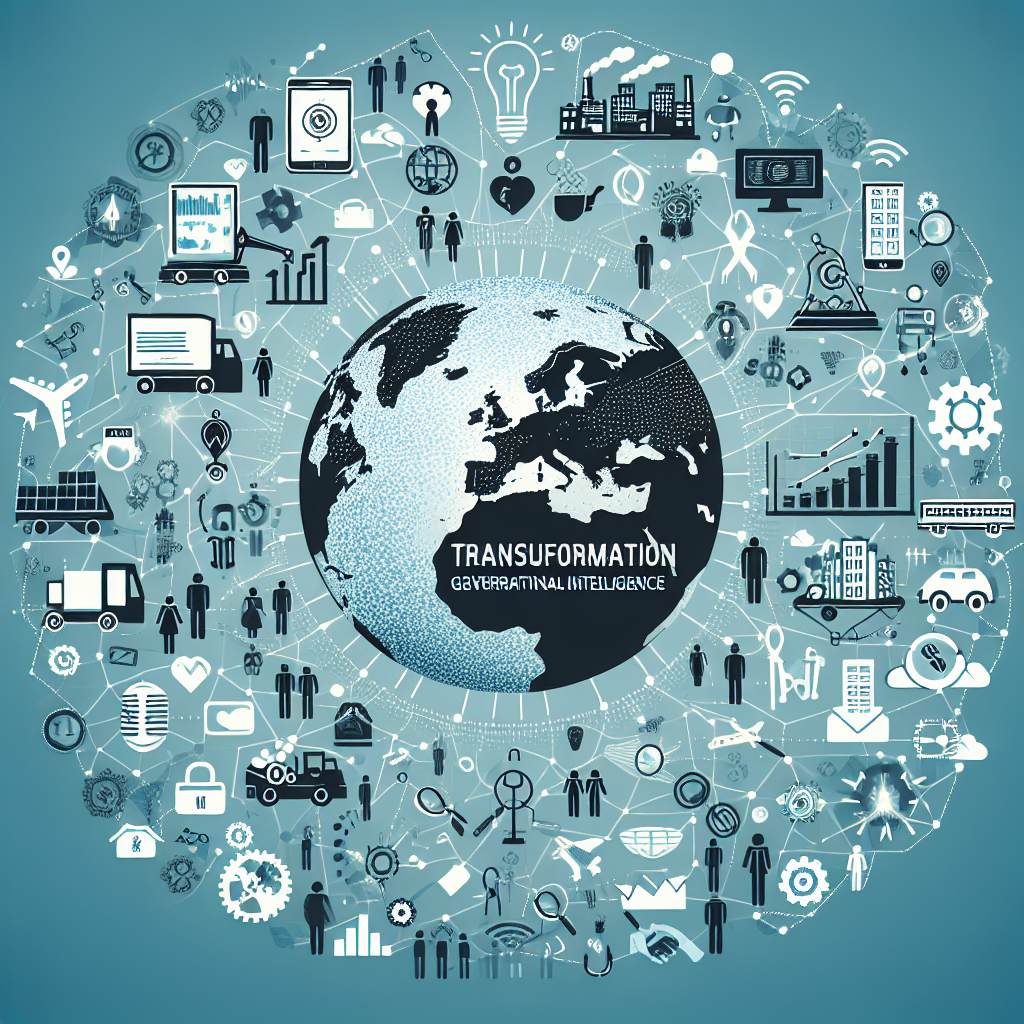Artificial General Intelligence (AGI) is a term that refers to machines that possess the ability to understand, learn, and apply knowledge across a wide range of tasks and domains, much like a human being. While there are many different types of artificial intelligence, AGI is considered to be the ultimate goal in the field of AI research.
AGI has the potential to revolutionize industries and transform our world in ways that were previously unimaginable. From healthcare to finance, transportation to entertainment, AGI has the power to disrupt and reshape every aspect of our lives. In this article, we will explore the impact of AGI on various industries and how it is poised to change the world as we know it.
The Impact of AGI on Industries
1. Healthcare: AGI has the potential to revolutionize the healthcare industry by improving diagnosis accuracy, predicting patient outcomes, and personalizing treatment plans. With the ability to process vast amounts of data and identify patterns that humans may overlook, AGI can help healthcare professionals provide more effective and efficient care to patients.
2. Finance: AGI can revolutionize the finance industry by improving risk management, fraud detection, and investment strategies. With the ability to analyze market trends in real time and make data-driven decisions, AGI can help financial institutions optimize their operations and maximize profits.
3. Transportation: AGI has the potential to transform the transportation industry by enabling autonomous vehicles to navigate roads safely and efficiently. With the ability to learn from their environment and make decisions in real time, AGI-powered vehicles can reduce accidents, traffic congestion, and carbon emissions.
4. Entertainment: AGI can revolutionize the entertainment industry by creating immersive and personalized experiences for consumers. From virtual reality games to personalized movie recommendations, AGI can help content creators deliver engaging and relevant content to their audiences.
5. Manufacturing: AGI can revolutionize the manufacturing industry by improving production efficiency, quality control, and supply chain management. With the ability to optimize processes and identify inefficiencies, AGI can help manufacturers reduce costs and improve product quality.
The Potential of AGI to Transform Our World
In addition to revolutionizing industries, AGI has the potential to transform our world in ways that were previously unimaginable. From addressing global challenges such as climate change and poverty to enhancing human creativity and productivity, AGI can help us build a better future for all.
1. Addressing Global Challenges: AGI can help us address pressing global challenges such as climate change, poverty, and disease. With the ability to analyze complex data sets and identify innovative solutions, AGI can help policymakers, scientists, and activists tackle these challenges more effectively.
2. Enhancing Human Creativity: AGI can enhance human creativity by collaborating with artists, writers, and musicians to create new forms of art and culture. With the ability to generate ideas, patterns, and designs, AGI can help us push the boundaries of what is possible in the creative arts.
3. Improving Productivity: AGI can improve human productivity by automating repetitive tasks, freeing up time for more meaningful and creative work. With the ability to learn from experience and adapt to new challenges, AGI can help us become more efficient and effective in our daily lives.
Frequently Asked Questions about AGI
Q: What is the difference between AGI and other forms of artificial intelligence?
A: AGI is distinguished from other forms of artificial intelligence by its ability to understand, learn, and apply knowledge across a wide range of tasks and domains. While narrow AI systems are designed to perform specific tasks, such as speech recognition or image classification, AGI is designed to possess the general intelligence of a human being.
Q: What are the ethical implications of AGI?
A: The development of AGI raises important ethical questions about the impact of AI on society, the economy, and the environment. Issues such as job displacement, bias in algorithms, and the potential misuse of AGI for malicious purposes must be addressed to ensure that AI is developed and deployed in a responsible and ethical manner.
Q: Will AGI replace human workers?
A: While AGI has the potential to automate many tasks currently performed by humans, it is unlikely to replace human workers entirely. Instead, AGI is more likely to augment human capabilities and enable us to focus on more meaningful and creative work that requires human intuition and empathy.
Q: How can we ensure that AGI is developed safely and responsibly?
A: To ensure that AGI is developed safely and responsibly, it is important to establish clear ethical guidelines and standards for AI research and development. Collaboration between governments, industry, and academia is essential to address ethical challenges and mitigate risks associated with AGI.
In conclusion, AGI has the potential to revolutionize industries and transform our world in ways that were previously unimaginable. From healthcare to finance, transportation to entertainment, AGI has the power to disrupt and reshape every aspect of our lives. By addressing ethical challenges and harnessing the potential of AGI for the greater good, we can build a better future for all.

